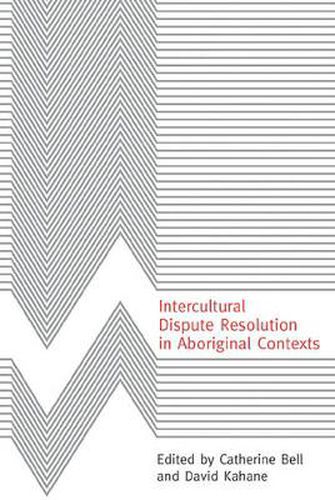Readings Newsletter
Become a Readings Member to make your shopping experience even easier.
Sign in or sign up for free!
You’re not far away from qualifying for FREE standard shipping within Australia
You’ve qualified for FREE standard shipping within Australia
The cart is loading…






The past two decades have seen a burgeoning of theoretical and popular interest in appropriate forms of dispute resolution. Given perceived deficiencies in adversarial, court-centered responses to conflict, there has been a search for forms of dispute resolution less costly in both social and economic terms. However, notwithstanding their growing appeal, alternative forms of dispute resolution raise serious questions of justice. Does a move away from formal legal process threaten the impartiality and fairness of outcomes? How are concepts of justice and approaches to dispute resolution inflected by culture, and how can approaches to alternative dispute resolution (ADR) take seriously the challenges of intercultural justice, understanding, and negotiation? These questions are particularly pressing in processes designed and implemented in the context of Aboriginal land claims, treaties, and self-government agreements, and in connection with court-based institutions in indigenous communities. The opportunities, challenges, uncertainties, and concerns around ADR in Aboriginal contexts are intensely practical and also have extensive theoretical dimensions. The essays in this volume engage the reader in these issues from the perspective of Aboriginal and non-Aboriginal scholars and practitioners. This volume also makes available reflections on the constraints of institutionalized problem solving and provides practical insight into the effectiveness of specific dispute resolution models adopted in Canada, Australia, and the United States. It also offers examples of indigenous dispute resolution philosophies and systems, and explores the critical issue of whether it is possible to design ADR processes that empower indigenous communities given the impact of colonization. The first collection of its kind, Intercultural Dispute Resolution in Aboriginal Contexts offers much needed guidance to scholars, lawyers, negotiators, dispute resolution practitioners, and others concerned with dispute resolution in Aboriginal contexts.
$9.00 standard shipping within Australia
FREE standard shipping within Australia for orders over $100.00
Express & International shipping calculated at checkout
The past two decades have seen a burgeoning of theoretical and popular interest in appropriate forms of dispute resolution. Given perceived deficiencies in adversarial, court-centered responses to conflict, there has been a search for forms of dispute resolution less costly in both social and economic terms. However, notwithstanding their growing appeal, alternative forms of dispute resolution raise serious questions of justice. Does a move away from formal legal process threaten the impartiality and fairness of outcomes? How are concepts of justice and approaches to dispute resolution inflected by culture, and how can approaches to alternative dispute resolution (ADR) take seriously the challenges of intercultural justice, understanding, and negotiation? These questions are particularly pressing in processes designed and implemented in the context of Aboriginal land claims, treaties, and self-government agreements, and in connection with court-based institutions in indigenous communities. The opportunities, challenges, uncertainties, and concerns around ADR in Aboriginal contexts are intensely practical and also have extensive theoretical dimensions. The essays in this volume engage the reader in these issues from the perspective of Aboriginal and non-Aboriginal scholars and practitioners. This volume also makes available reflections on the constraints of institutionalized problem solving and provides practical insight into the effectiveness of specific dispute resolution models adopted in Canada, Australia, and the United States. It also offers examples of indigenous dispute resolution philosophies and systems, and explores the critical issue of whether it is possible to design ADR processes that empower indigenous communities given the impact of colonization. The first collection of its kind, Intercultural Dispute Resolution in Aboriginal Contexts offers much needed guidance to scholars, lawyers, negotiators, dispute resolution practitioners, and others concerned with dispute resolution in Aboriginal contexts.